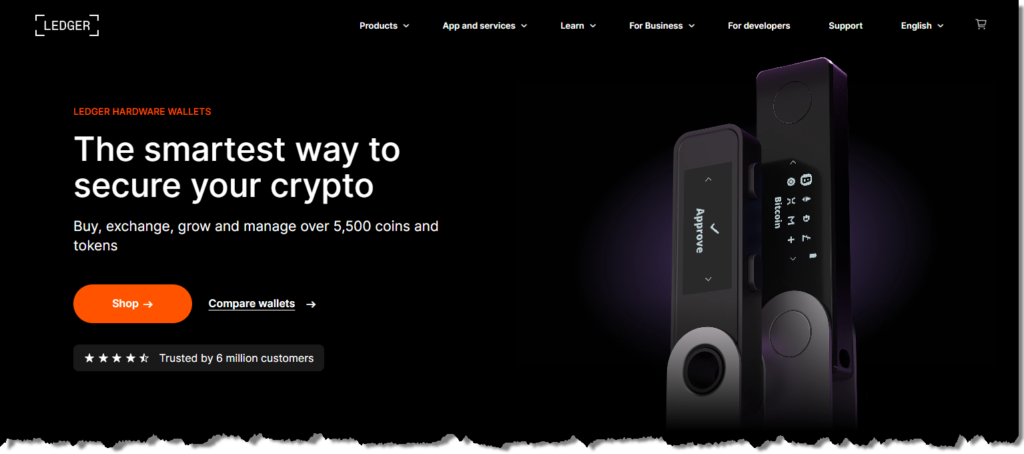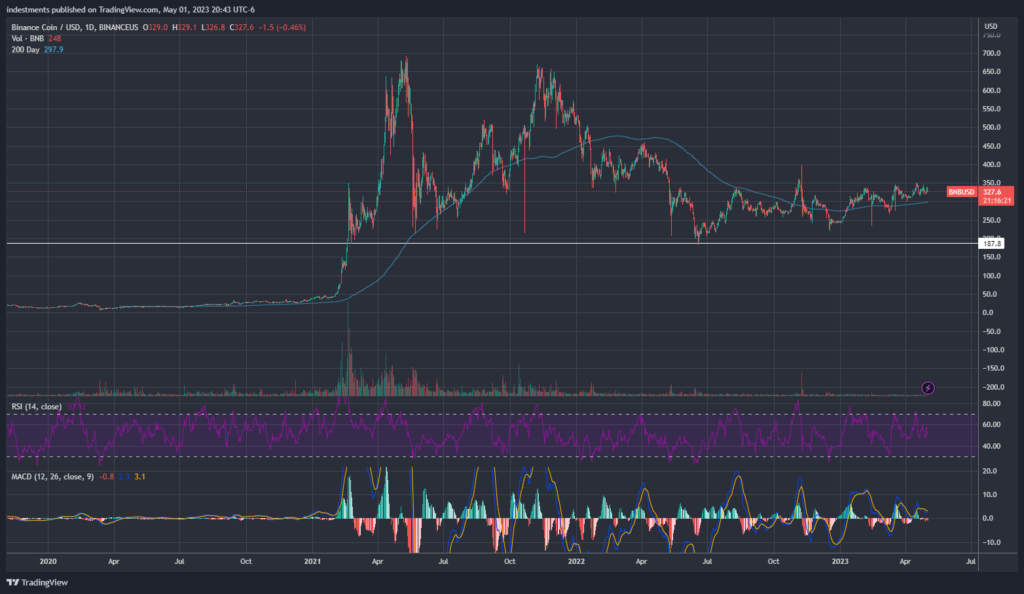A blockchain platform that introduced smart contracts, allowing more complex decentralized applications beyond just a currency.
Price Chart for ETH
Trade on KuCoin, Automate with 3commas.
The introduction of Ethereum (ETH) in 2015 has revolutionized the world of blockchain technology. Ethereum is a blockchain-based platform that enables the development of decentralized applications (dApps) and smart contracts.
It is the world’s leading blockchain platform, and it is the foundation for a new wave of applications and services that are transforming the way we interact with the digital world.
What is Ethereum?
Ethereum is an open source, public, blockchain-based distributed computing platform and operating system featuring smart contract (scripting) functionality. It provides a decentralized virtual machine, the Ethereum Virtual Machine (EVM), which can execute scripts using an international network of public nodes. Ethereum also provides a cryptocurrency token called “ether”, which can be transferred between accounts and used to compensate participant nodes for computations performed.

Ethereum was proposed in late 2013 by Vitalik Buterin, a cryptocurrency researcher and programmer. Development was funded by an online crowdsale that took place between July and August 2014. The system went live on 30 July 2015, with 11.9 million coins “premined” for the crowdsale.
How Does Ethereum Work?
Ethereum is based on the concept of distributed computing and smart contracts. A smart contract is a computer protocol intended to facilitate, verify, or enforce the negotiation or performance of a contract. Ethereum enables developers to build and deploy decentralized applications.
The Ethereum platform is powered by ether, a cryptocurrency which is transferred between accounts and used to compensate participant nodes for computations performed. The system is secure thanks to cryptography and each node is connected to the blockchain through a client that performs the task of validating and relaying transactions.
Smart contracts are written in a high-level language and compiled down to EVM bytecode, which is then deployed to the Ethereum blockchain for execution. Contracts are stored publicly on every node of the blockchain, which has costs.
Benefits of Ethereum
Ethereum offers a number of advantages over other blockchain platforms. It is the first platform to introduce smart contracts, allowing developers to create more complex decentralized applications beyond just a currency.
Ethereum also provides a more secure platform than other blockchain networks, as it uses advanced cryptography and a consensus algorithm to validate transactions. This makes Ethereum more resistant to fraud and censorship.
Ethereum is also more scalable than other blockchain networks. It can process more transactions per second than Bitcoin, and it is capable of handling a larger number of transactions.
Conclusion
Ethereum is a revolutionary blockchain platform that has opened up a world of possibilities for developers. It is the first platform to introduce smart contracts, allowing developers to create more complex decentralized applications beyond just a currency. It is also more secure, more scalable, and more resistant to fraud and censorship than other blockchain networks. Ethereum is set to revolutionize the way we interact with the digital world, and it is sure to have a major impact in the years to come.
Frequently Asked Questions
Q. What is a blockchain platform?
A. A blockchain platform is a distributed digital ledger that is decentralized and immutable. It records data in a transparent, secure, and verifiable way, making it an ideal technology for enabling transparent and trustless transactions.
Q. What is a smart contract?
A. A smart contract is a computer protocol that automates the performance of a contract. It allows users to create and execute contracts that are both secure and self-executing, meaning that once certain conditions have been met, specific actions are triggered without the need for a middleman.
Q. What are some of the applications of a blockchain platform?
A. Blockchain platforms are being used for a wide variety of applications, such as:
• Decentralized Identity (DID)
• Supply Chain Management
• Digital Voting
• Payment Services
• Cryptocurrency
• Insurance
• Digital Asset Management
• Copyright Management
• IoT Applications
• Stablecoins
• Investment Platforms
Q. What are the benefits of using a blockchain platform?
A. There are a number of benefits of using a blockchain platform, which include:
• Increased Security – Blockchains are highly secure because of cryptography and decentralized consensus mechanisms.
• Improved Transparency – Data stored on a blockchain platform is immutable and can be viewed by all parties on the network, making it more transparent.
• Speedy Transactions – Transactions on blockchains can occur at a much faster rate than those that happen through traditional methods.
• Reduced Cost – Blockchain technology eliminates the need for a third-party and thus reduces transaction fees.
• Robust Traceability – Data on a blockchain is immutably stored, which allows for robust traceability of all transactions.
Key Trading Tips To Remember
We have been giving away our proven crypto trading plan PDF since 2015. Join thousands of people and learn to profit from trend trading. Sign up for the Free Crypto Trading Plan PDF or learn about our Altcoin Season Indicator.





